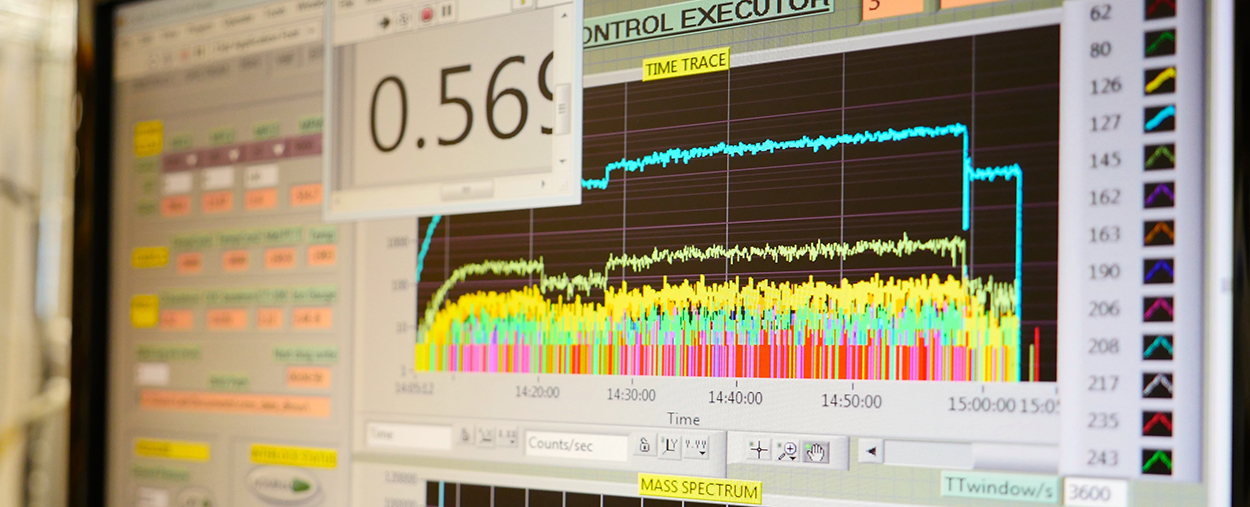
Atmospheric Chemistry Laboratories
Atmospheric Chemistry laboratories at the Rosenstiel School house state-of-the-art analytical techniques used to measure properties of atmospheric particles and gases and characterize their sources. Field deployable instrumentation including single-particle mass spectrometry and chemical ionization mass spectrometry are used to measure individual aerosol particles and trace gases in real time. These techniques are also used in laboratory studies to provide a mechanistic understanding of the atmospheric sources and reactions responsible for field observations.
Faculty Specialists: Elliot Atlas, Cassandra Gaston, Anthony Hynes
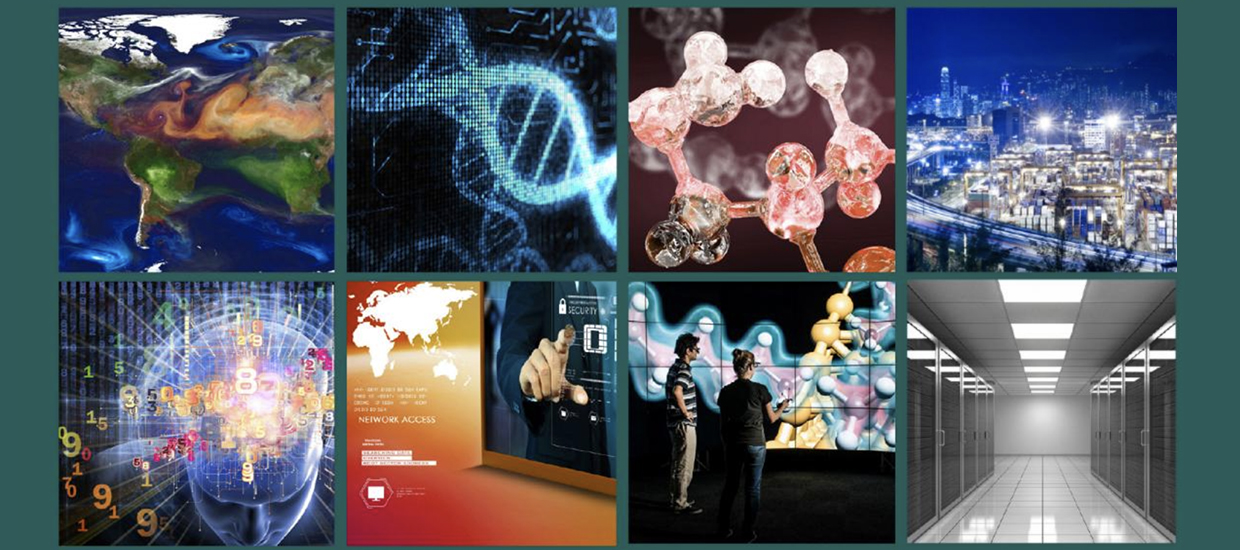
Center for Computational Science
High Performance Computing at the University of Miami’s Center for Computational Science (CCS) is an essential part of research for the faculty, students, and scientists in ATM. The world-class supercomputers at CCS provide the infrastructure necessary to perform cutting-edge research in weather and climate processes and prediction.
Faculty Specialists: Amy Clement, Ben Kirtman, Sharan Majumdar, Brian Mapes, David Nolan, Brian Soden
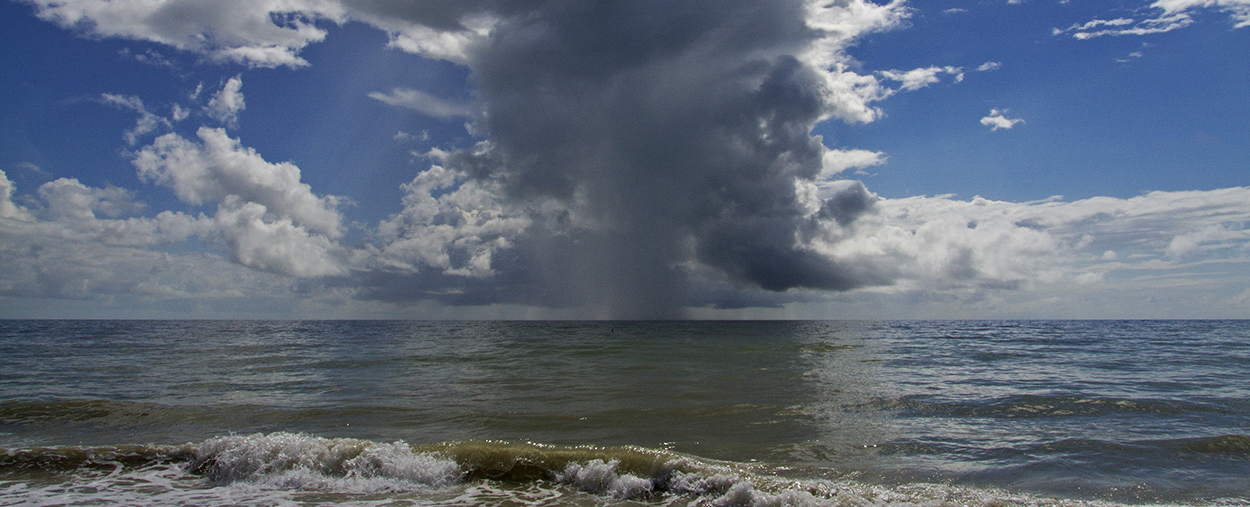
Cloud-Aerosol-Rain Observatory
South Florida's Cloud-Aerosol Rain Observatory (CAROb) is an instrument suite at the Rosenstiel School aimed at improving our understanding of low cloud processes, cloud-aerosol interactions, and the radiative impacts of clouds and aerosols. The sun photometers contribute to the global AERONET network. A particular aerosol focus is Saharan dust, which dominates the annual aerosol loading at Miami. Daily imagery keeps you in touch with today's weather.
Faculty Specialist: Paquita Zuidema
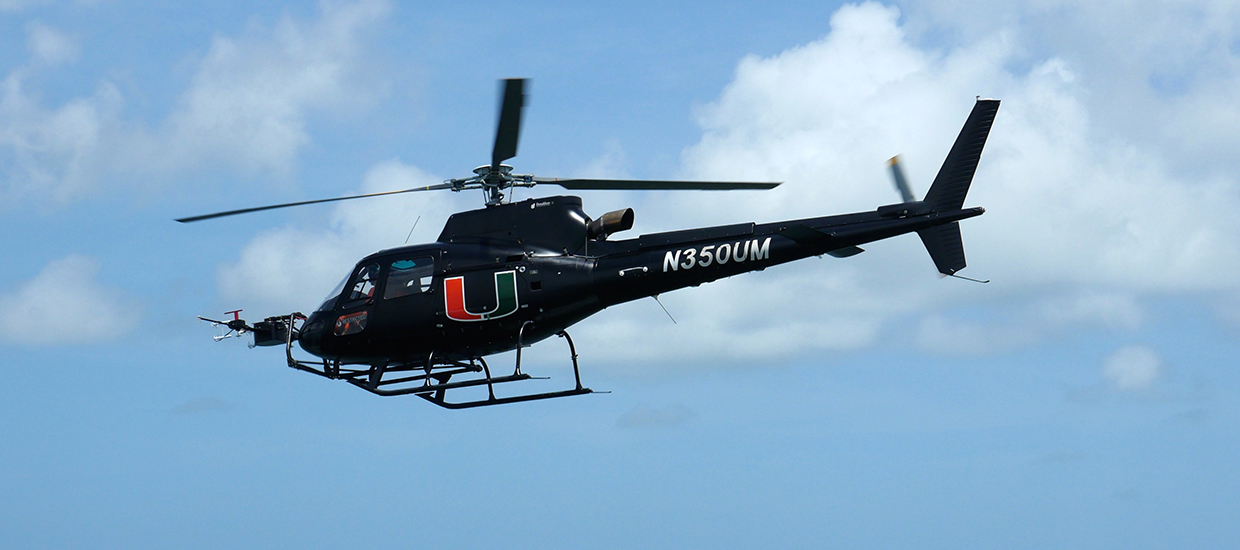
Helicopter Observation Platform
The University of Miami’s Helicopter Observation Platform (HOP) is a one-of-a-kind resource that is ideal for atmospheric sampling and remote sensing observations. This flying scientific laboratory aids in the study of atmospheric aerosols, such as Saharan dust, as well as chemical, physical, and biological processes in the atmospheric boundary layer and in particular near the surface of the Earth.
Faculty Specialist: Roni Avissar
The Weather Server
A powerful data server participates in live peer-to-peer sharing of current weather data streams from around the world. Weather.rsmas keeps a rolling archive of the most recent few weeks of global data, including forecasts and verifications along with satellite, radar, stations, balloons, and other observational data sources. This system allows researchers and weather watchers to collaborate worldwide, without having to be physically located together.
Faculty Specialist: Brian Mapes
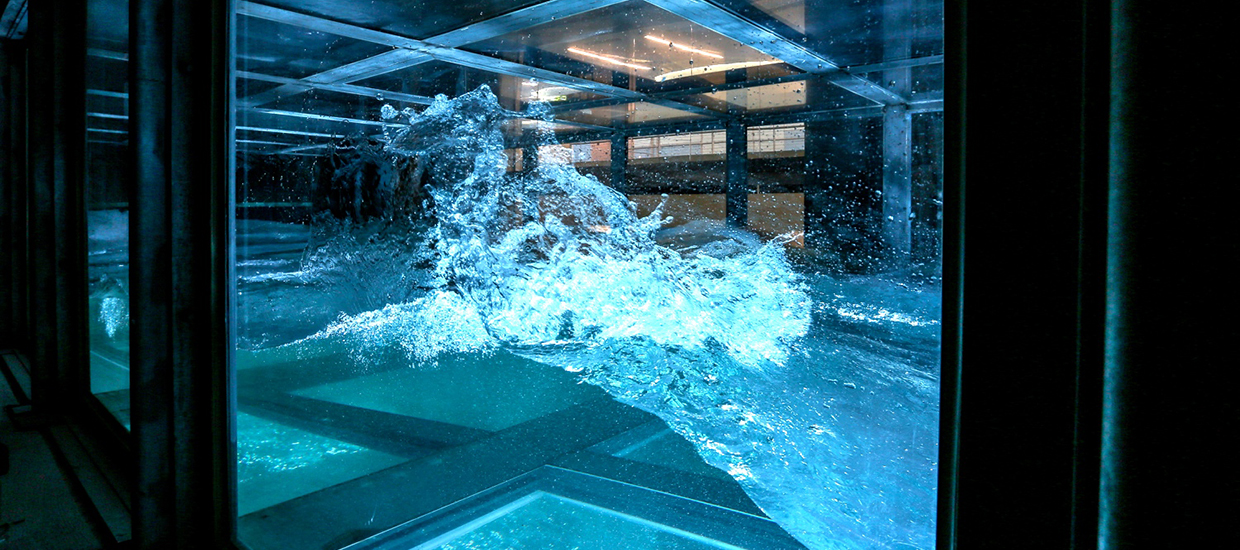
Surge Structure Atmosphere Interaction (SUSTAIN) Facility
SUSTAIN, housed at the Rosenstiel School, is a brand new facility that addresses a significant gap in the existing research infrastructure available to support the development of disaster-resistant and resilient coastal communities. SUSTAIN has the capability to test three-dimensional coupled wind-waves and surge and their combined impacts on structures in conditions as extreme as a land-falling Category 5 hurricane. The laboratory exists as a unique resource for fundamental studies on air-sea interactions, wave dynamics, and boundary layer turbulence while providing an experimental test-bed for model development. ATM faculty, staff, and students have the opportunity to collaborate with the SUSTAIN team.
Faculty Specialists: Brian Haus (Department of Ocean Sciences)
Local Collaborations
NOAA’s Hurricane Research Division & National Hurricane Center
Faculty and students in ATM work closely with scientists in NOAA’s Hurricane Research Division (located across the causeway from the Rosenstiel School) and forecasters at the National Hurricane Center. NOAA scientists often serve as research collaborators, guest lecturers, mentors, and committee members for ATM students.








